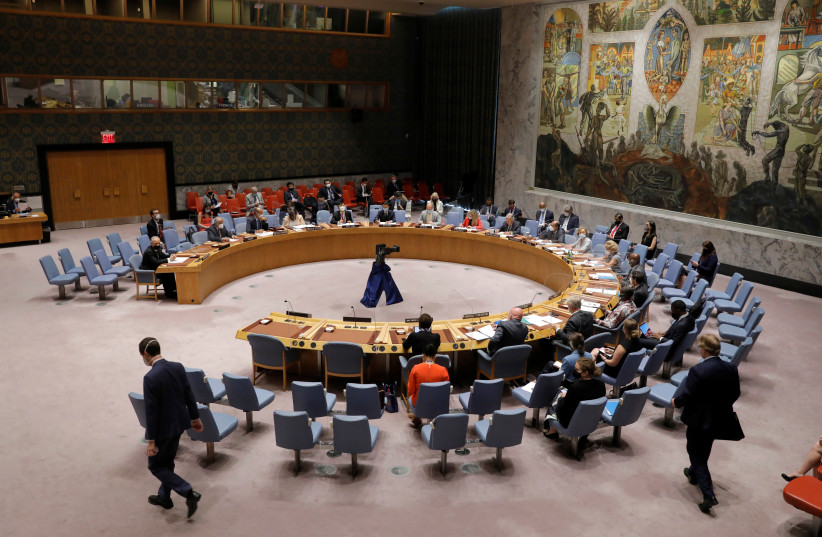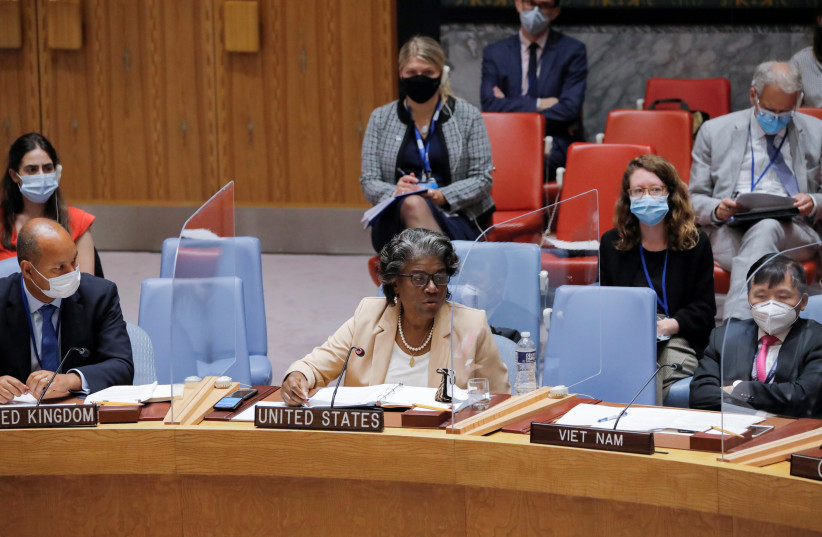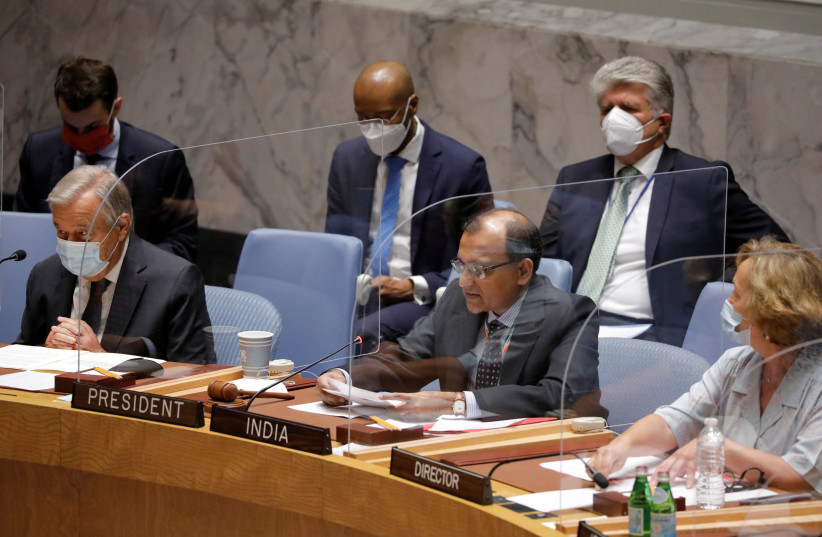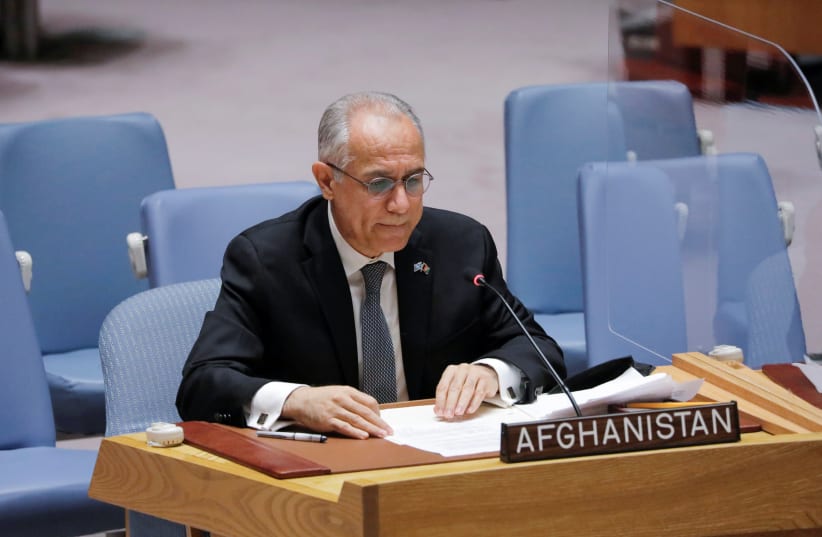The 15-member United Nations Security Council met on Monday to discuss Afghanistan, per the request of Estonia and Norway.
The UN Security Council called for the establishment, through negotiations, of a new government in Afghanistan that is "united, inclusive and representative, including with the full, equal and meaningful participation of women."
The 15-member body also called for an immediate end to hostilities and human rights abuses and for all parties to allow immediate, safe and unhindered humanitarian access.

United Nations Secretary-General Antonio Guterres called on the Security Council to "use all tools at its disposal to suppress the global terrorist threat in Afghanistan" and guarantee that basic human rights will be respected.
"We are receiving chilling reports of severe restrictions on human rights throughout the country. I am particularly concerned by accounts of mounting human rights violations against the women and girls of Afghanistan," he told the 15-member council.
"We cannot and must not abandon the people of Afghanistan," he said.
Independent UN experts reported to the Security Council last month that al Qaeda is present in at least 15 Afghan provinces, consisting mainly of Afghan and Pakistani nationals, but also people from Bangladesh, India and Myanmar.
"Afghanistan must never again become a haven for terrorists. This is the bottom line," China's deputy UN Ambassador Geng Shuang told the council. "We hope that the Taliban... make a clean break with the terrorist organizations."
Russian UN Ambassador Vassily Nebenzia said the Taliban's quick defeat of government forces "took everyone by surprise."
"Currently we believe that there is no point in panicking... a widespread bloodbath amongst civilians has been avoided. We urge all Afghan parties to refrain from hostilities and to foster a settlement peacefully," he said.
Under Taliban rule between 1996 and 2001, women could not work, girls were not allowed to attend school and women had to cover their faces and be accompanied by a male relative if they wanted to venture out of their homes.
In the chaos and uncertainty of the Taliban takeover of Afghanistan, legislator Farzana Kochai says she fears for her life first and her freedom next, but that Afghans will not tolerate a return to the harshest forms of Islamist rule.Like other Afghans, she is laying low at home, with no idea how the situation will pan out for elected representatives such as her - or anyone else - under a group that imposed strict Islamic mores and punishments on society when last in charge."As an MP, as a female, as someone who is coming from civil society, activism and human rights, women's rights, coming from this background for sure I am afraid for myself, my life, my freedom to work and my freedom to speak up," she said by Zoom."If we can't make a good deal with the Taliban, if Taliban can't make it to satisfy the people of Afghanistan somehow or a little bit, then there would be a resistance," she said, seeing the potential for more conflict."I'm afraid of these things," she said. "First of all my life ... and after that my freedom."

"Attacks against civilians or civilian objects must stop. The human rights and fundamental freedoms of all Afghan citizens, especially women, girls and members of minority groups, must be respected," US Ambassador to the United Nations, Linda Thomas-Greenfield told the council.
Ireland's UN Ambassador Geraldine Byrne Nason called on the Security Council to stand with the women of Afghanistan amid "multiple and credible reports of summary executions, forced marriage and of sexual and gender-based violence."
"The Taliban have reportedly said that women have nothing to fear from them," she told the council. "Telling the international community what it wants to hear will fool no one. We will not turn a blind eye to the truth."
Afghanistan's UN ambassador Ghulam Isaczai told the Security Council he was speaking for millions of people "whose fate hangs in the balance," including women and girls "about to lose their freedom to go to school, to work and to participate in the political, economic, and social life of the country."
Isaczai called on the council and the United Nations not to recognize any administration that achieves power by force or any government that is not inclusive. He urged them to call for the immediate establishment of an inclusive transitional government.


The current Security Council consists of 15 members, with the US, China, France, Russia and the UK being permanent members. Estonia, Norway, India, Ireland, Kenya, Mexico, Niger, Saint Vincent and the Grenadines, Tunisia and Vietmnam are also on the council.
